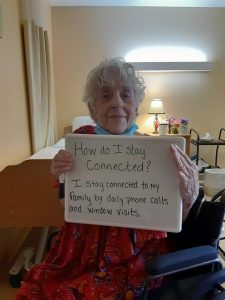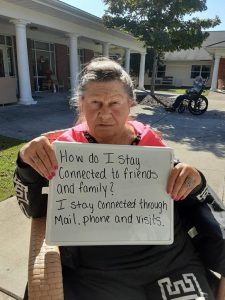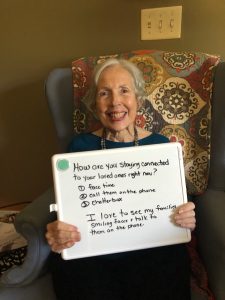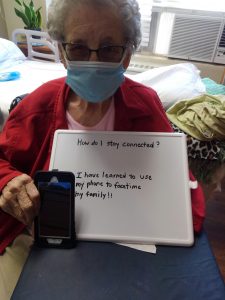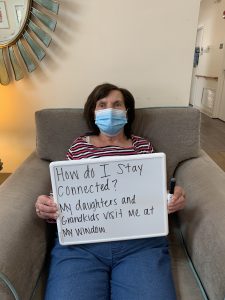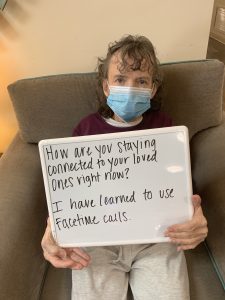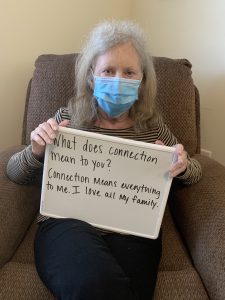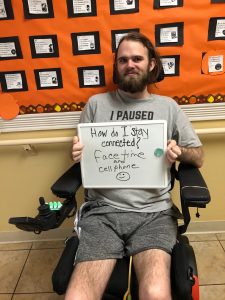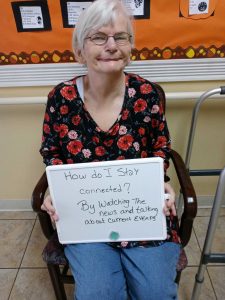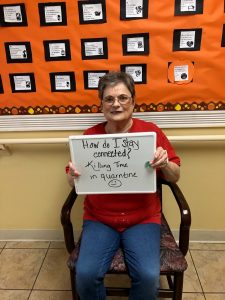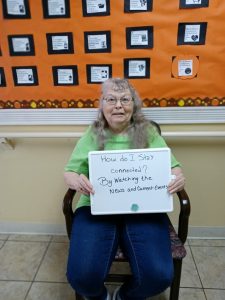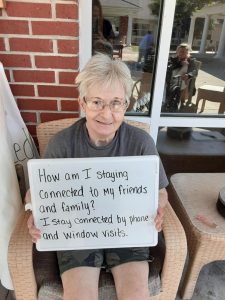 The COVID-19 pandemic has changed life in numerous ways for us all. That’s especially true for residents of long-term care facilities. Since seniors have been identified as more vulnerable to the coronavirus, family and friends have been discouraged or prohibited from having close personal contact with their older loved ones. And that can result in a major disconnect between residents in long-term care and the outside world.
The COVID-19 pandemic has changed life in numerous ways for us all. That’s especially true for residents of long-term care facilities. Since seniors have been identified as more vulnerable to the coronavirus, family and friends have been discouraged or prohibited from having close personal contact with their older loved ones. And that can result in a major disconnect between residents in long-term care and the outside world.
In an effort to mitigate those feelings of loneliness and isolation — and in conjunction with Residents’ Rights Month throughout October — United Way’s Area Agency on Aging and its Long-Term Care Ombudsman program recently reached out to various nursing homes and assisted-living facilities in Jefferson County. The Ombudsman program asked facility staff members to proactively talk to residents about the importance of staying connected to family and friends, finding effective ways to communicate, sharing how they feel and keeping up with what’s going on in others’ lives.
 The facilities were “challenged” to have these open conversations and then ask some of their residents to let us know how they’re staying connected during these difficult times. In response, we received a variety of photos (see below) showing residents holding up white boards where they had indicated their main form of communication, ranging from facetime on their phones to personal visits through glass. We’re glad to see so many taking steps to stay connected, stay positive and stay safe!
The facilities were “challenged” to have these open conversations and then ask some of their residents to let us know how they’re staying connected during these difficult times. In response, we received a variety of photos (see below) showing residents holding up white boards where they had indicated their main form of communication, ranging from facetime on their phones to personal visits through glass. We’re glad to see so many taking steps to stay connected, stay positive and stay safe!
Many thanks to Mt. Royal Towers, St. Martin’s in the Pines, Trussville Health and Rehab and Peachtree Senior Living for participating and sending us these wonderful photos.
 The Long-Term Care Ombudsman monitors quality of care at nursing homes, boarding homes and assisted living facilities throughout Jefferson County; provides in-service training to facility staff; serves as a confidential advocate for residents and families in matters of quality of care and residents’ rights; and advocates at the state level for improvement to policy concerning long-term care. Click here to learn more.
The Long-Term Care Ombudsman monitors quality of care at nursing homes, boarding homes and assisted living facilities throughout Jefferson County; provides in-service training to facility staff; serves as a confidential advocate for residents and families in matters of quality of care and residents’ rights; and advocates at the state level for improvement to policy concerning long-term care. Click here to learn more.
